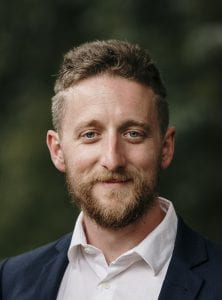The School of Critical Studies and Education invites you to a presentation by Tom Pearce as part of his Provisional Year Confirmation.
9-11am Monday 7th August | 6EN-415, Epsom Campus
This research owes its genesis to my own experience of teaching at various primary schools in New Zealand. Assessment is a core part of teaching work, and like most teachers in New Zealand (Brown, 2009), I hold a commitment to using assessment to enhance and deepen learning. In other words, the formative use of assessment. Formative assessment (FA) has been the subject of intense focus by researchers, educators and policy-makers for more than 30 years. Research indicates that, on average, FA is an effective tool to improve teaching and learning, but these averages conceal significant complexity of outcomes, with impacts on learning that range from strongly negative to strongly positive. Distinctions are made between formal and informal FA, with informal FA (IFAs) typified by their responsiveness, flexibility, spontaneity and immediacy through processes of interaction, dialogue, negotiation and feedback (P. Black & Wiliam, 2009; Sezen-Barrie & Kelly, 2017; Shavelson et al., 2008). In my teaching practice I have experienced pressure to focus narrowly on discrete learning that reduced formative assessments (FA) to a formal check-box exercise, rather than an interactive practice for developing deep conceptual understandings. This experience prompted me to explore informal formative assessment (IFA) in greater depth through research, for their potential to grant greater flexibility and responsiveness to student needs. Like all formative assessment, IFAs are highly situated, with cultural, social, linguistic and historical contextual factors that influence how they are perceived, understood, carried out and responded to (Brown, 2009; Harris & Brown, 2009; Heng et al., 2021; Kaur, 2021). They involve a range of human factors like power relationships, cultural differences, biases, behaviour, psychology, and implicit social and linguistic knowledge; all of which impact significantly on the form, function and outcomes (Cowie et al., 2018; Kluger & DeNisi, 1996; Pryor & Crossouard, 2008; Sadler, 2010; Tai et al., 2018; Torrance, 2012). On top of all this, my initial literature review revealed a need for research into how and why New Zealand primary school teachers are enacting their assessments. This research therefore aims to untangle some of the complexity of IFAs by taking a critical theoretical and social constructivist lens to the exploration of case studies of three New Zealand primary school teachers as they negotiate the enactment of informal formative assessments.
 Tom is a doctoral student at the University of Auckland’s Faculty of Education and Social Work. He has worked for eight years as a primary school teacher, both in New Zealand and abroad. He holds a MEd from Victoria University of Wellington, where he investigated the transformative power of student voice, language and literacy acquisition, as well as issues in sociolinguistics. He also has a BA majoring in human geography, and a GradDipTchg (Primary) from the University of Auckland. Tom’s current research interests are assessment, education policy, and the enactment of policy in classrooms. He explores these issues through critical educational and social constructivist lenses.
Tom is a doctoral student at the University of Auckland’s Faculty of Education and Social Work. He has worked for eight years as a primary school teacher, both in New Zealand and abroad. He holds a MEd from Victoria University of Wellington, where he investigated the transformative power of student voice, language and literacy acquisition, as well as issues in sociolinguistics. He also has a BA majoring in human geography, and a GradDipTchg (Primary) from the University of Auckland. Tom’s current research interests are assessment, education policy, and the enactment of policy in classrooms. He explores these issues through critical educational and social constructivist lenses.
Tom’s PhD is supervised by Carol Mutch and Jennifer Tatebe.
Recent Comments